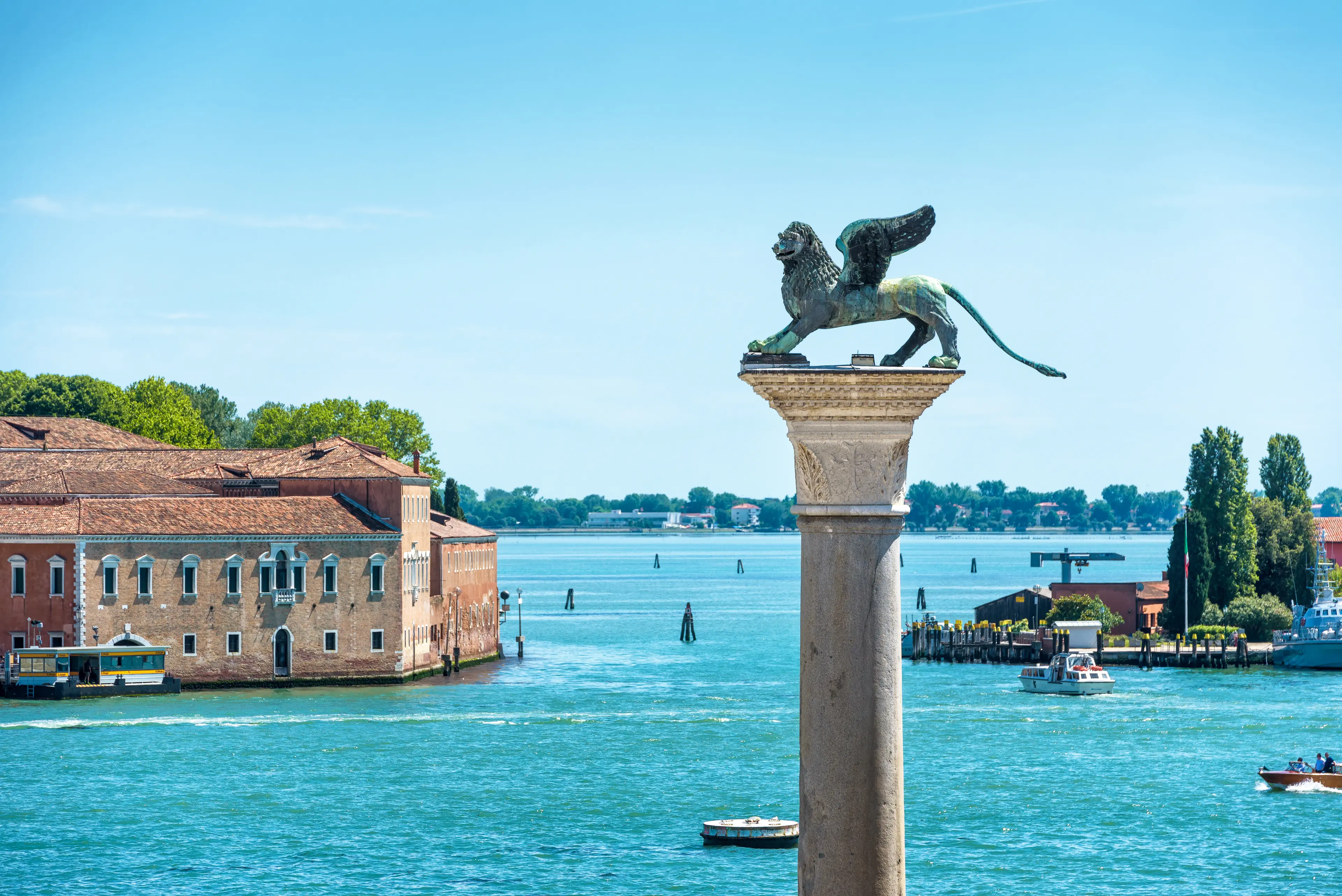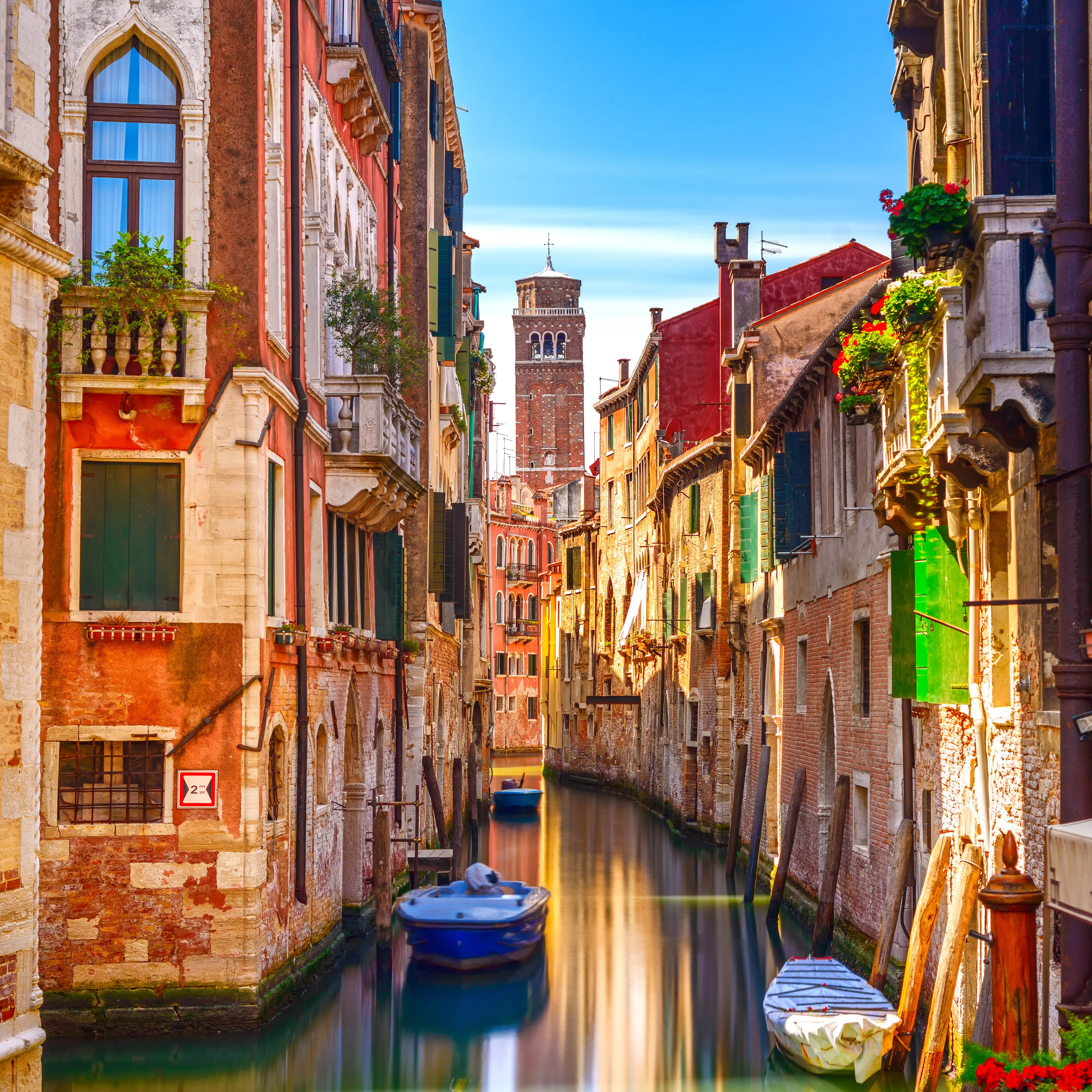3-Day Local's Guide: Outdoor Adventures and Sightseeing in Venice
Venice, Italy
3 days
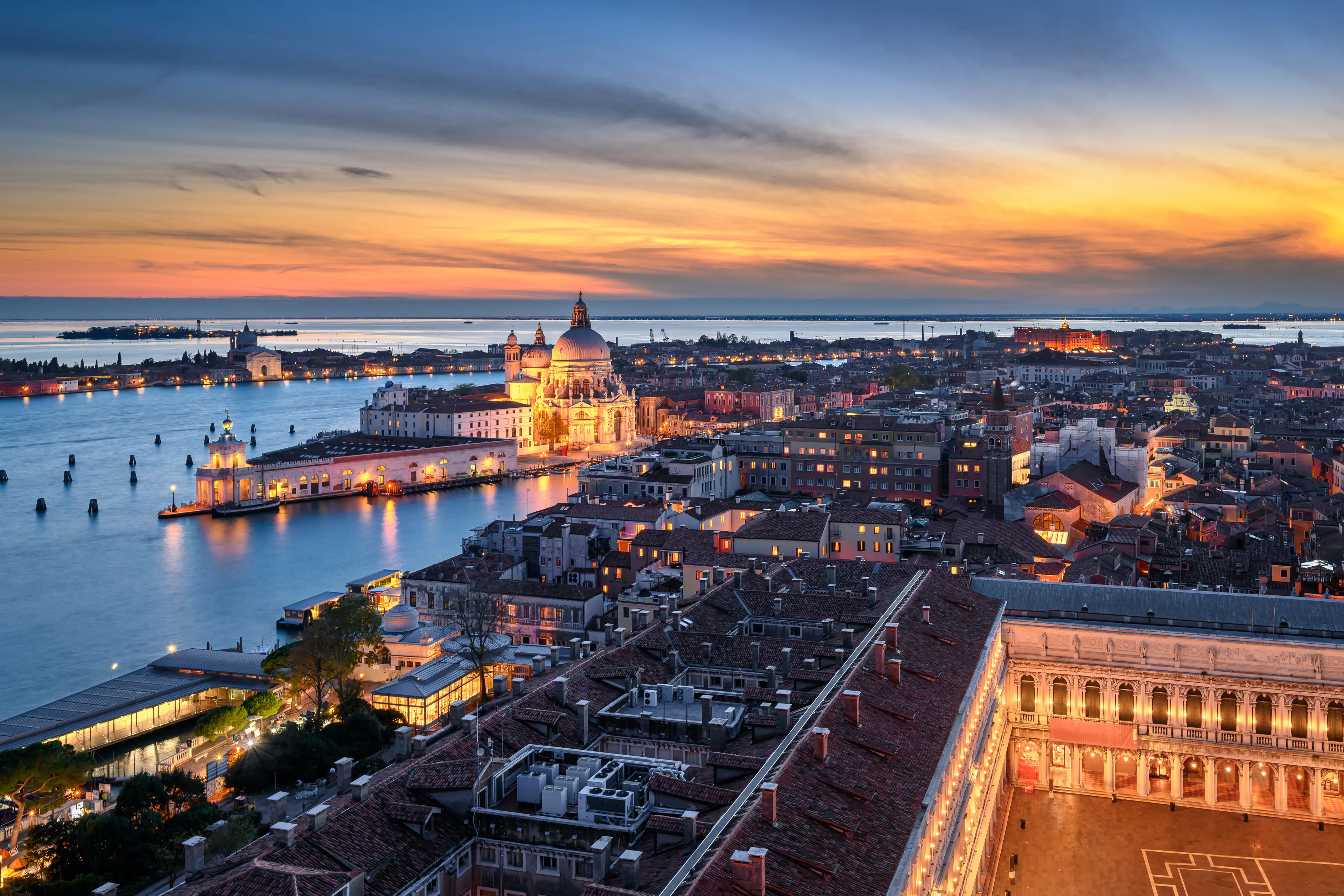

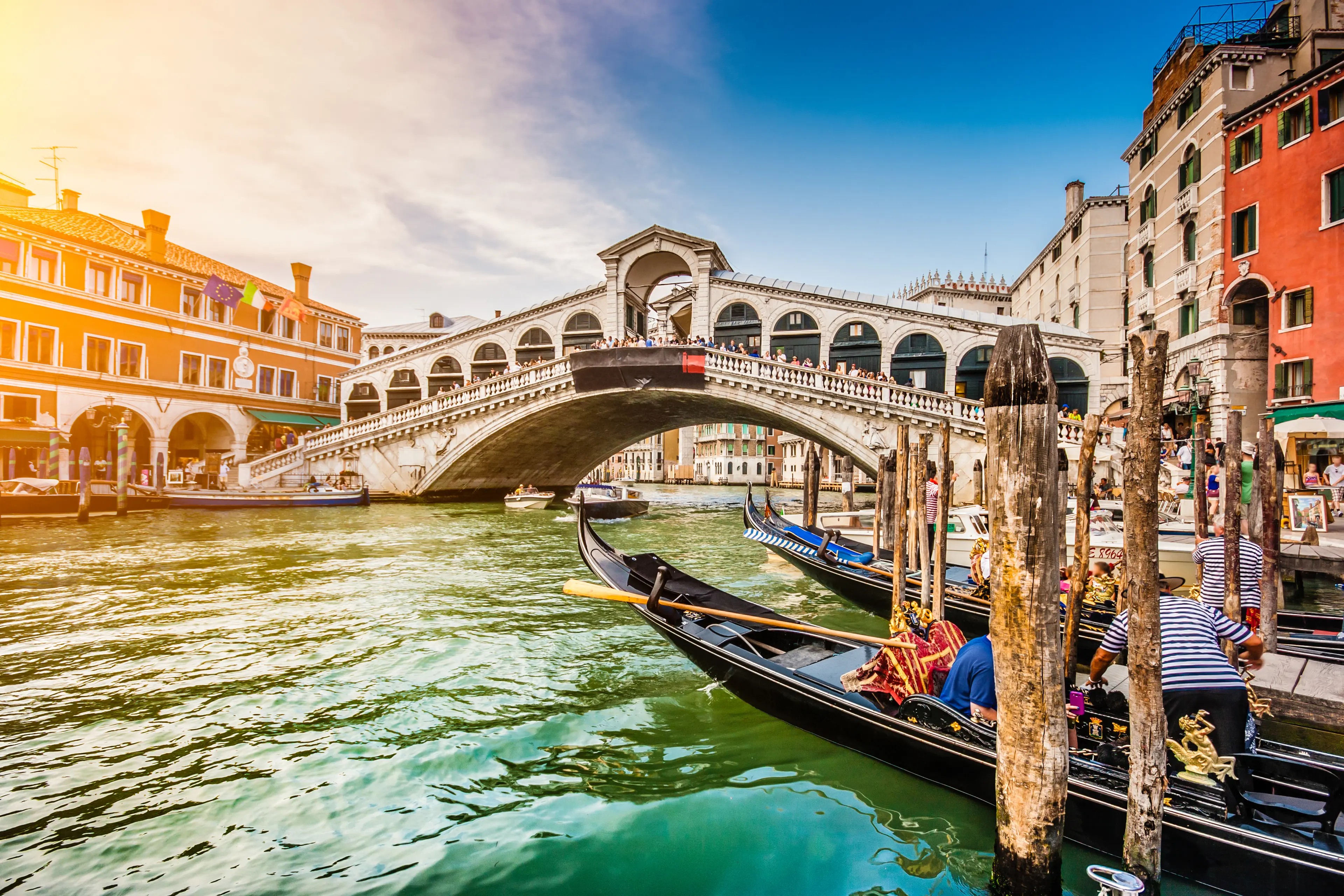
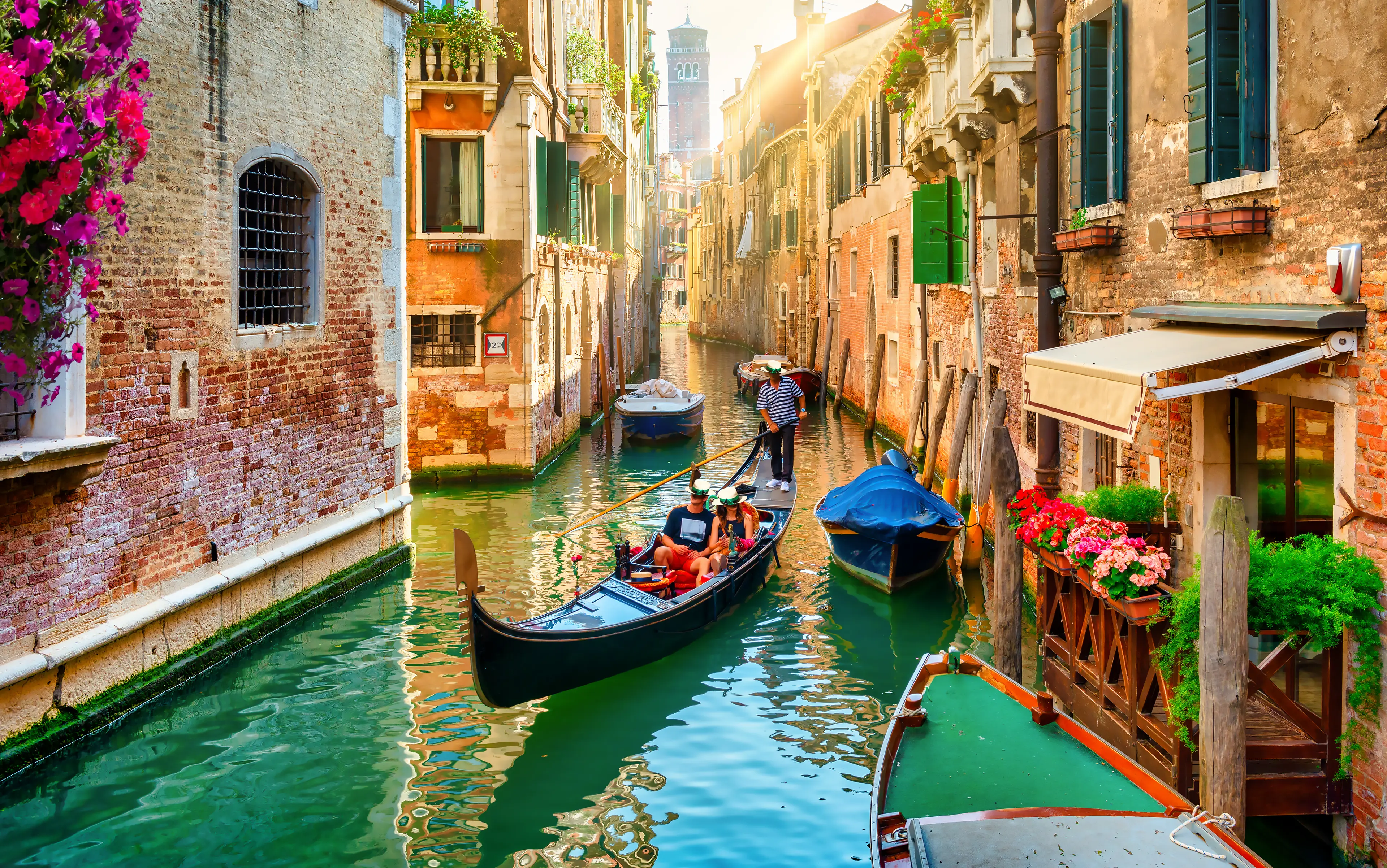
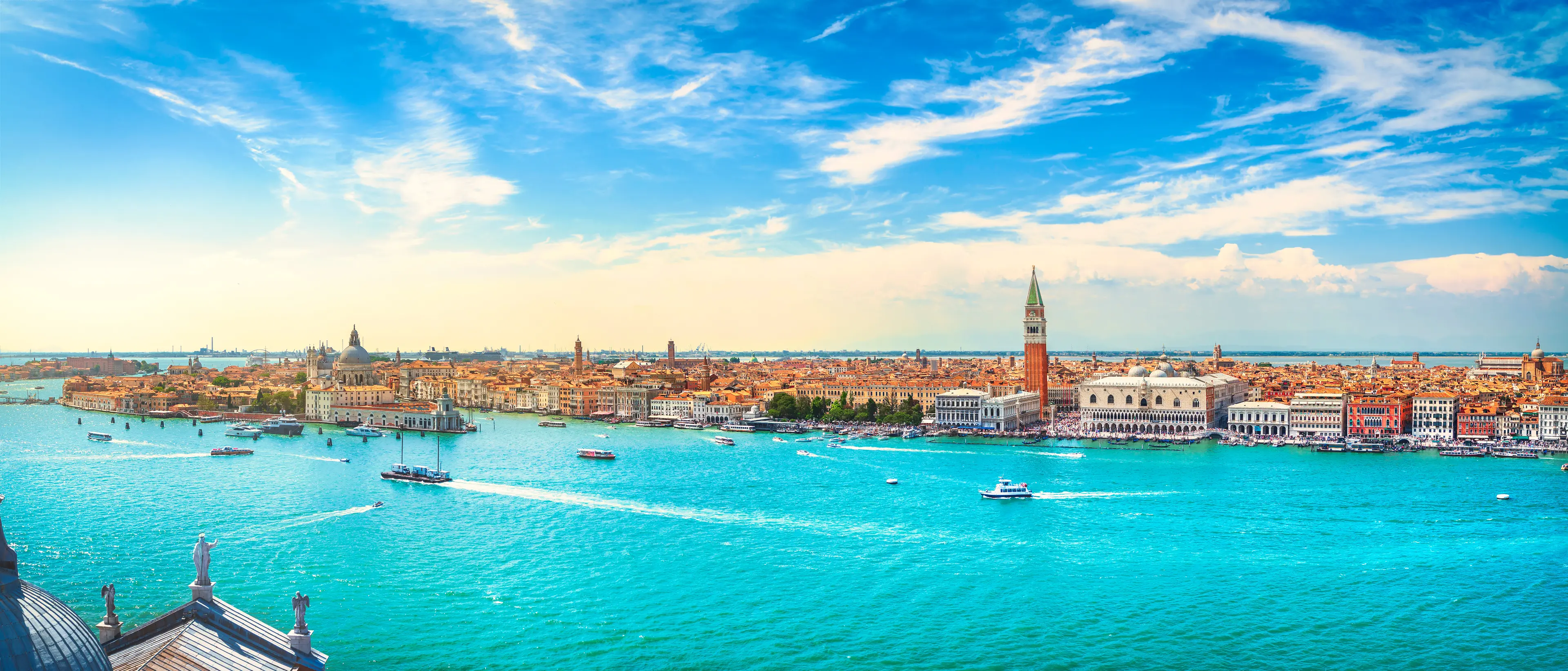
About Venice, Italy
Experience the enchanting city of Venice, Italy, a unique architectural masterpiece built on 118 small islands. Traverse the city's labyrinth of canals on a gondola, passing under its 400 bridges and marveling at the grandeur of its palaces and piazzas. Visit the iconic St. Mark's Square, home to the stunning Basilica and Doge's Palace. Explore the city's rich history in its numerous museums and art galleries, showcasing works from masters like Titian and Tintoretto. Enjoy authentic Italian cuisine in charming trattorias and sip on world-class wines. Shop for traditional Venetian masks and Murano glass souvenirs. Venice's romantic ambiance, cultural treasures, and picturesque landscapes make it an unforgettable destination.
3-Day Itinerary
Day 2
Island Hopping and Lagoon Adventures
Morning
Visit the islands of Murano and Burano. Murano is famous for its glass-making, while Burano is known for its brightly colored houses and lace-making. Both islands offer a quieter, more local experience than the main part of Venice.
Lunch
Have lunch at a local restaurant on Burano. Try the island's famous risotto de gò, a dish made with goby fish.
Afternoon
Explore the Venetian Lagoon by kayak. This is a great way to see the city from a different perspective and get some exercise at the same time.
Dinner
Enjoy a seafood dinner at a local restaurant. Venice is known for its fresh seafood, so be sure to try some local specialties like fritto misto (mixed fried seafood).
Evening
Take a moonlit walk along the Zattere, a long promenade that offers stunning views of the Giudecca Canal. This is a popular spot for locals to relax and enjoy the evening.
Day 3
Art, Beaches, and Opera
Morning
Visit the Peggy Guggenheim Collection, one of the most important museums of European and American art of the 20th century. The museum is housed in a beautiful palazzo on the Grand Canal.
Lunch
Have lunch at a local café in the Dorsoduro district. This area is known for its bohemian vibe and is a great place to relax and people-watch.
Afternoon
Take a boat tour to the Lido, a long, narrow island that serves as a beach resort for Venetians. Spend the afternoon relaxing on the beach or swimming in the Adriatic Sea.
Dinner
Have dinner at a local pizzeria. While pizza is not a traditional Venetian dish, it's a staple of Italian cuisine and there are many excellent pizzerias in Venice.
Evening
End your trip with a visit to the Teatro La Fenice, one of the most famous opera houses in Italy. If you're not an opera fan, you can still enjoy a tour of the beautiful building.
Attractions in Itinerary (10)

1St. Mark's Square
St. Mark's Square is the principal public square of Venice. It's surrounded by stunning architecture, including St. Mark's Basilica and the Doge's Palace.

2Doge's Palace
The Doge's Palace is a palace built in Venetian Gothic style, and one of the main landmarks of the city. It was the residence of the Doge of Venice, the supreme authority of the former Venetian Republic.

3St. Mark's Basilica
St. Mark's Basilica is the cathedral church of the Roman Catholic Archdiocese of Venice. It's one of the best examples of Italo-Byzantine architecture.

4Grand Canal
The Grand Canal is the major water-traffic corridor in Venice. Visitors can take a gondola ride or a vaporetto (water bus) to explore the city from the water.

5Rialto Bridge
The Rialto Bridge is one of the four bridges spanning the Grand Canal in Venice. It's the oldest bridge across the canal and a significant landmark in the city.

6Murano and Burano
Two islands in the Venetian Lagoon, known for their glassmaking and lacework respectively.

7Venetian Lagoon
The Venetian Lagoon is an enclosed bay of the Adriatic Sea. It's home to Venice and many smaller islands. Boat tours of the lagoon offer a different perspective on the region.

8Peggy Guggenheim Collection
An important museum in Italy for European and American art of the first half of the 20th century located in Peggy Guggenheim's former home.

9Lido
A barrier island that is home to Venice's beach, the Venice Film Festival, and a popular summer destination.

10Teatro La Fenice
One of the most famous and renowned landmarks in the history of Italian theatre.
Local Food and Drinks (12)

Risotto al nero di seppia
A classic Venetian dish, it's a creamy rice dish cooked with cuttlefish and its ink, giving it a unique black color and a rich, briny flavor. It's a must-try for seafood lovers visiting Venice.

Sarde in Saor
This is a traditional Venetian appetizer made of sardines marinated in onions, vinegar, raisins, and pine nuts. It's a perfect blend of sweet and sour flavors, reflecting Venice's historical connection to the spice trade.

Fegato alla Veneziana
This is Venice's take on liver and onions. The liver is thinly sliced and cooked with onions, providing a rich and hearty dish that's a staple in Venetian cuisine.

Baccalà Mantecato
A traditional Venetian dish made from dried and salted cod, whipped into a creamy spread. It's typically served on polenta or bread, and is a popular starter in Venice.

Bigoli in Salsa
A traditional pasta dish made with bigoli (thick spaghetti) and served with an anchovy and onion sauce. It's a simple yet flavorful dish that's a staple in Venetian cuisine.

Prosecco
A sparkling wine from the Veneto region, Prosecco is a popular aperitif in Venice. It's light, bubbly, and perfect for toasting your trip to this beautiful city.

Spritz
A popular cocktail in Venice, made with Prosecco, a dash of bitter liqueur (usually Aperol or Campari), and topped with a slice of orange. It's a refreshing drink, perfect for sipping while enjoying the city's beautiful views.

Risi e Bisi
A traditional Venetian dish that's a cross between a soup and a risotto. It's made with rice and peas, and is typically served in the spring when peas are in season.

Polenta e Schie
A traditional Venetian appetizer made with polenta and schie (tiny shrimp from the Venetian lagoon). It's a simple yet flavorful dish that showcases the fresh seafood of the region.

Baicoli
A traditional Venetian biscuit, Baicoli are thin, dry, and crunchy. They're often served with a sweet wine for dipping, making them a perfect dessert or snack.

Zaleti
Traditional Venetian cookies made with cornmeal and raisins. They're named after their yellow color (zaleti means 'little yellows' in Venetian), and are a popular sweet treat in the city.

Gianduiotto
A rich and creamy cocktail made with chocolate gelato, whipped cream, and a shot of brandy. It's a popular after-dinner drink in Venice, and a must-try for chocolate lovers.
Best time to visit
The best time to visit Venice, Italy is typically during the spring (April to June) and fall (September to October). During these periods, the weather is most pleasant and the city is less crowded compared to the summer months. You can enjoy the city's attractions, events, and beautiful scenery more comfortably. However, it's important to note that Venice can be quite busy during the Venice Biennale (which usually starts in May) and the Venice Film Festival (usually in September). So if you prefer a quieter visit, you might want to check the dates of these events.
How to get around
Vaporetto (Water Bus)
Vaporettos are the main form of public transportation in Venice. They are essentially large water buses that travel along various routes throughout the city and its surrounding islands. Vaporettos are a great way to get around, especially if you're traveling longer distances or want to visit the outer islands like Murano or Burano.
Gondola
Gondolas are traditional Venetian rowing boats. They are mainly used for romantic or scenic rides along the city's canals, rather than as a practical means of transportation. A gondola ride can be a unique and memorable way to experience the city, but it's not the most efficient way to get around.
Traghetto
Traghettos are larger gondolas that are used to ferry passengers across the Grand Canal at various points where there are no bridges. They are a practical and inexpensive way to cross the canal quickly.
Water Taxi
Water taxis are private, motorized boats that can take you directly to your destination. They are faster and more flexible than vaporettos, but also more expensive. Water taxis can be a good option if you're traveling with a lot of luggage or if you're in a hurry.
Foot
Venice is a compact and walkable city, and walking is often the quickest and most convenient way to get around. The city is made up of narrow, winding streets and over 400 bridges, so it's a good idea to have a map or navigation app on hand.
Ridesharing
Ridesharing services are not applicable in Venice due to the city's unique structure of canals and pedestrian-only streets. Traditional road vehicles are not used within the city.
Important information
Currency€ EUR
Time zoneUTC+1
Driving sideRight
Emergency phoneAmbulance: 112, 118; Fire: 112, 115; Police: 112, 113;
Drinking waterYes, but some opt for bottled water
Power sockets
Voltage230 V
Things to know about Venice, Italy as a first time visitor
1
Venice is a city built on water, so the primary mode of transportation is by boat. The public transportation system is called the Vaporetto.
2
Venice can be quite crowded, especially during the peak tourist season (April to October). Plan your visit accordingly.
3
Venice is a walking city, so comfortable shoes are a must. Many streets are cobblestone and can be uneven.
4
Venice is known for its high tides, or 'aqua alta'. If you're visiting in the fall or winter, be prepared for possible flooding in some areas.
5
Venice is made up of many small islands. The main areas are connected by bridges, but some islands require a boat to reach.
6
Venice is famous for its glass-making industry. You can visit the island of Murano to see glass-blowing demonstrations.
7
Venice has a strict policy against feeding pigeons in St. Mark's Square. You can be fined if caught.
8
Venice has a unique address system that can be confusing for first-time visitors. Make sure you have a good map or GPS.
9
Venice's tap water is safe to drink and comes from the nearby Dolomite mountains. Many fountains around the city provide free drinking water.
10
Venice can be quite hot in the summer, with temperatures reaching up to 86°F (30°C), and quite cold in the winter, with temperatures dropping to 32°F (0°C). Dress accordingly.
11
Venice is known for its mask-making tradition. If you're visiting during Carnival (February), you might want to buy a mask as a souvenir.
12
Venice has a tourist tax that is usually included in your hotel bill. This tax goes towards maintaining the city's infrastructure.
13
Venice is a city of art. However, flash photography is not allowed in most museums and churches.
14
Venice is a city with a rich history and culture. Consider hiring a local guide to learn more about its past.
15
Venice's cuisine is based on seafood. Try local specialties like 'sarde in saor' (sweet and sour sardines) and 'risotto al nero di seppia' (squid ink risotto).
16
Venice has strict rules about where you can and can't eat or drink in public. Always look for signs or ask locals if you're unsure.
17
Venice's shops and restaurants can be expensive. Consider eating and shopping in less touristy areas for better prices.
18
Venice's gondolas are a popular tourist attraction, but they can be quite expensive. Consider sharing a gondola with other tourists to save money.
19
Venice is a safe city, but like any tourist destination, it's wise to be aware of your surroundings and keep an eye on your belongings.
20
Venice's main airport is Marco Polo Airport. It's located on the mainland and is about a 20-minute boat ride from the city.
Basic Italian to know as a first time visitor
English phrase | Native phrase | Pronunciation | When to use it |
|---|---|---|---|
Hello | Ciao | Chow | Greeting someone |
Goodbye | Arrivederci | Ah-ree-veh-der-chee | Saying goodbye |
Please | Per favore | Per fa-voh-reh | Making a request |
Thank you | Grazie | Gra-tsee-eh | Expressing gratitude |
Yes | Sì | See | Agreeing or confirming |
No | No | No | Disagreeing or denying |
Excuse me | Mi scusi | Mee skoo-zee | Getting attention or apologizing |
I'm sorry | Mi dispiace | Mee dee-spya-che | Apologizing |
Do you speak English? | Parli inglese? | Par-lee in-gle-se? | Asking if someone speaks English |
I don't understand | Non capisco | Non ka-pee-sko | Expressing confusion |
Where is...? | Dove si trova...? | Doh-veh see troh-va...? | Asking for directions |
Bathroom | Bagno | Bahn-yo | Looking for a bathroom |
Help | Aiuto | Aye-oo-toh | In need of assistance |
Food | Cibo | Chee-bo | Looking for food |
Water | Acqua | Aqua | Asking for water |
Beer | Birra | Beer-ra | Ordering a beer |
Wine | Vino | Vee-no | Ordering wine |
How much does it cost? | Quanto costa? | Kwan-toh costa? | Asking for the price |
Can I have the bill, please? | Posso avere il conto, per favore? | Pos-so ave-re il con-to, per fa-voh-reh? | Asking for the bill |
Good night | Buonanotte | Bwo-na-not-te | Saying goodnight |
Packing List
Clothing
Lightweight clothing
Underwear
Socks
Sleepwear
Comfortable walking shoes
Swimwear (if planning to visit the Lido)
Sunglasses
Hat for sun protection
Light jacket or sweater for cooler evenings
Raincoat or umbrella
Toiletries
Toothbrush and toothpaste
Deodorant
Shampoo and conditioner
Body wash or soap
Razor and shaving cream
Makeup and makeup remover
Sunscreen
Insect repellent
Prescription medications
First aid kit
Travel documents and essentials
Passport
Driver's license or other ID
Credit and debit cards
Cash (Euros)
Travel insurance documents
Hotel and tour reservation confirmations
Emergency contact information
Map of Venice
Electronics and gadgets
Smartphone
Charger for smartphone
Travel adapter for Italy
Camera
Charger for camera
Headphones
Portable power bank
Miscellaneous items
Snacks for travel
Reusable water bottle
Travel guidebook for Venice
Phrasebook or language app for Italian
Travel pillow and blanket
Earplugs and eye mask
Notebook and pen
Books or e-reader for leisure reading
Ziplock bags for protecting valuables
Weather Conditions
Venice, Italy, is a city known for its beautiful canals, historic architecture, and unique culture. However, the weather can greatly impact your travel experience, so it's important to plan accordingly. Venice experiences a humid subtropical climate. The summers (June to August) are typically hot and humid, with temperatures often reaching up to 86°F (30°C). If you're visiting during this time, be sure to pack lightweight, breathable clothing, sunscreen, and a hat to protect yourself from the sun. The winters (December to February) in Venice can be quite cold, with temperatures often dropping to around 32°F (0°C). If you're planning a winter visit, pack warm clothing, including a heavy coat, gloves, and a hat. Despite the cold, winter can be a great time to visit Venice as the city is less crowded. Spring (March to May) and fall (September to November) are considered the best times to visit Venice. The weather during these seasons is usually mild, with temperatures ranging from 50°F to 70°F (10°C to 21°C). These periods offer a comfortable climate for sightseeing and exploring the city. Regardless of the season, Venice is known for its high humidity levels, so it's essential to stay hydrated. Also, keep in mind that Venice is prone to flooding, especially in the fall and winter months. This phenomenon, known as "aqua alta" or high water, can result in some areas of the city being temporarily submerged. Lastly, always check the weather forecast before your trip and pack accordingly. This will ensure you're prepared for whatever weather Venice has in store for you.
| Month | Hi / Lo (°C) | Weather Overview |
|---|---|---|
January | 7° / -1° | January is the coldest month in Venice, with occasional snowfall. It's a quiet time for tourism, so you'll have the city almost to yourself. |
February | 8° / 0° | February is still chilly, but the Venice Carnival livens up the city. Pack warm clothes and a festive mask. |
March | 13° / 3° | March sees the start of spring, with temperatures gradually rising. It's a great time to visit before the summer crowds arrive. |
April | 18° / 8° | April offers mild and pleasant weather, perfect for exploring the city. The Easter celebrations add a festive touch. |
May | 22° / 11° | May is warm and sunny, ideal for gondola rides and outdoor dining. The city is beautiful with blooming flowers. |
June | 26° / 14° | June marks the start of summer, with long, sunny days. It's a popular time for tourists, so expect some crowds. |
July | 29° / 17° | July is the hottest month in Venice, with high humidity. It's a great time for beach visits and water activities. |
August | 28° / 17° | August is still hot and humid, but with fewer tourists. It's a good time to explore the less crowded areas of the city. |
September | 23° / 13° | September sees the start of autumn, with mild temperatures and less humidity. The Venice Film Festival attracts many visitors. |
October | 18° / 8° | October offers cooler temperatures and beautiful autumn colors. It's a great time for photography and leisurely walks. |
November | 11° / 3° | November is cooler and often rainy, but the city is less crowded. The Festa della Salute is a major event this month. |
December | 7° / 0° | December is cold with shorter days, but the Christmas festivities light up the city. It's a magical time to visit Venice. |
Did you know?
Places near by Venice, Italy

Verona
Famous for its Roman amphitheater, the Verona Arena, completed around 30 AD, which is the third largest in Italy.

Padua
Known for the frescoes by Giotto in its Scrovegni Chapel and the vast 13th-century Basilica of St. Anthony.

Bologna
A vibrant and historic city known for its beautiful porticos and its cuisine.

Lake Garda
Italy's largest lake, offering stunning scenery, with quaint lakeside towns and plenty of activities.

Trieste
A city and a seaport in northeastern Italy. It is situated towards the end of a narrow strip of Italian territory lying between the Adriatic Sea and Slovenia.

Ferrara
A city in Italy’s Emilia-Romagna region. It’s known for the buildings erected by its Renaissance rulers, the Este family.

Treviso
A city in northeastern Italy with many canals, and known for its Prosecco wine.

Vicenza
A city in northeastern Italy, in the Veneto region, at the northern base of the Monte Berico, straddling the Bacchiglione.

Ravenna
A city in Emilia-Romagna, Italy, known for its well-preserved Roman and Byzantine architecture.

Modena
A city in Italy's Emilia-Romagna region known for its balsamic vinegar, opera heritage, and Ferrari and Lamborghini sports cars.
